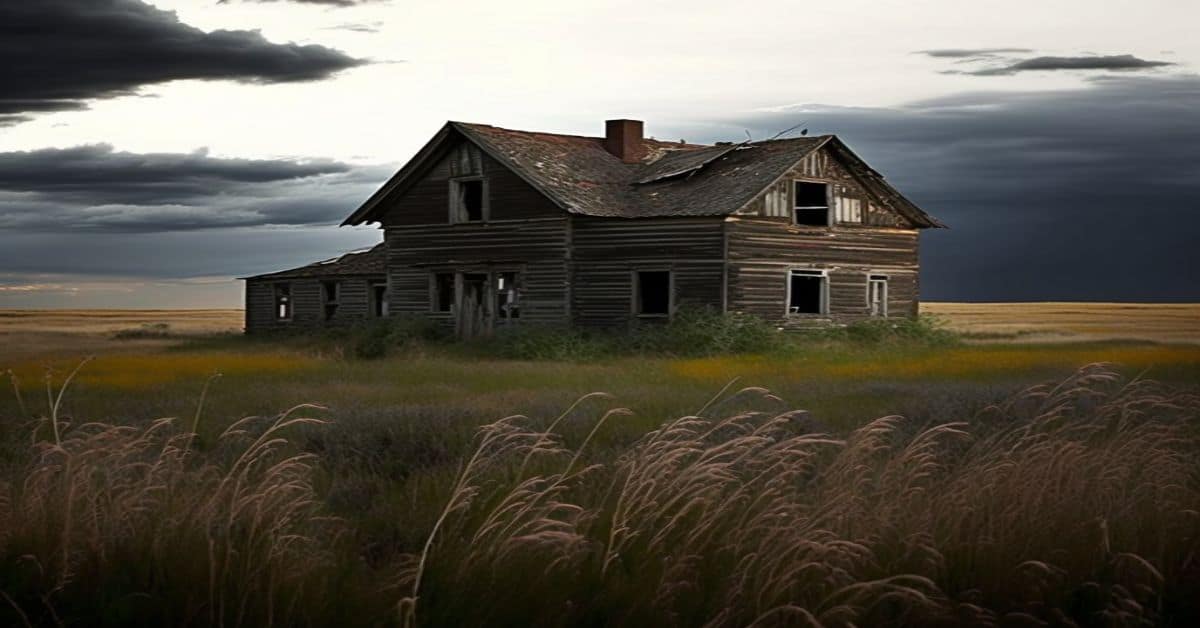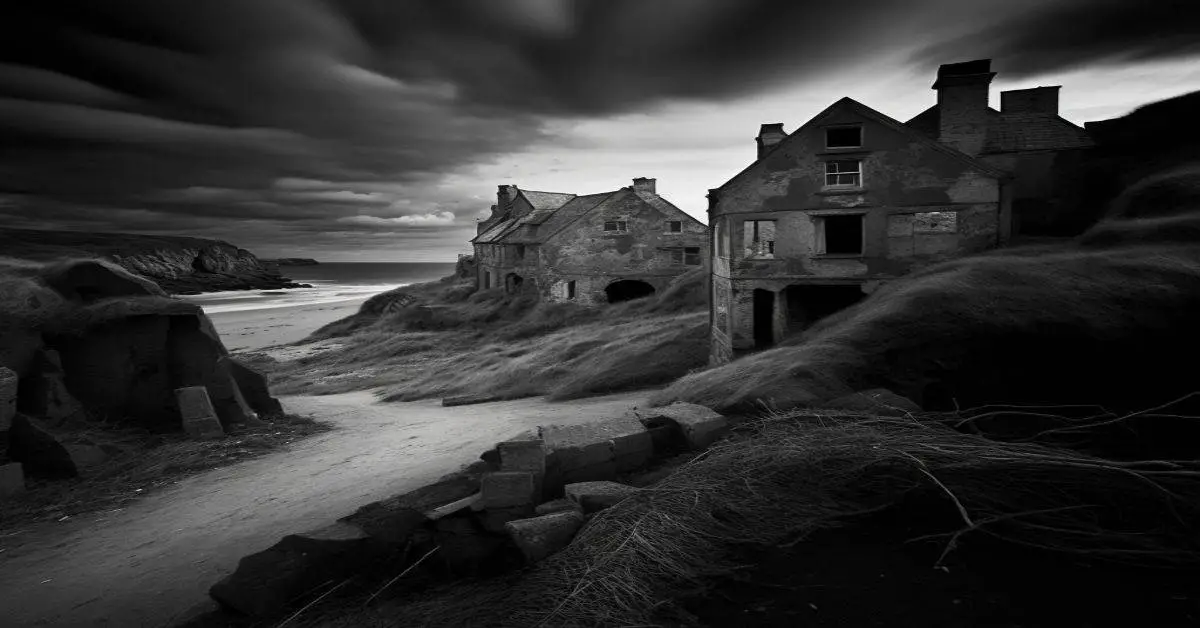Located in the heart of Ottawa County, Oklahoma, Afton is a small town that the rest of the world has largely forgotten. Despite its decline, this once-prosperous community continues to captivate those who come across it, with its haunting beauty and rich history.
Afton’s history is a fascinating tale of growth and decline. The town was founded in the late 1800s, and its fortunes were closely tied to the railroad, which brought in new residents and businesses. However, the construction of Route 66 really put Afton on the map, as travelers from across the country passed through on their way west.
Unfortunately, the decommissioning of Route 66 and the bypassing by Interstate 44 devastated Afton’s economy, leading to a decline that has lasted to this day. Despite this, the town has managed to preserve its character and charm, and is now a popular destination for travelers looking to experience the haunting beauty of a bygone era.
Key Takeaways
- Afton, OK is a small town in Ottawa County, established in 1886 as a farming community.
- The town experienced a period of prosperity during the heyday of Route 66, centered around the cultivation of fruits and vegetables and became a significant shipping point for these products.
- The decommissioning of Route 66 and bypassing by Interstate 44 devastated Afton’s economy, but efforts have been made to preserve the town’s history and legacy of Route 66.
- Afton’s connection to Route 66 has become a source of pride for the town and its residents, and visitors can experience the haunting beauty of Afton’s bygone era through its preserved character and charm.
History and Origins
The historical background and establishment of Afton, a once prosperous town located on Old Route 66 in Ottawa County, Oklahoma, is an intriguing subject that warrants further exploration.
Afton was established in 1886 as a farming community, and the town’s name was derived from the River Afton in Scotland, which was prominently mentioned in a Robert Burns poem.
The town became one of the earliest communities in Ottawa County and experienced a period of prosperity during the heyday of Route 66.
“A post office was established in Afton during 1886. The 1900 census showed a population of 606. In 1901, the Kansas City, Fort Scott and Memphis Railroad, which soon became part of the Frisco system, constructed another line through the town, creating a shorter route to Kansas City, and causing another spurt of population growth. The town became a Frisco division point and shipping center for the surrounding agricultural area.”
https://en.wikipedia.org/wiki/Afton,_Oklahoma
Afton’s farming community was centered around cultivating fruits and vegetables, and the town became a significant shipping point for these products.
The establishment of Route 66 brought a significant economic boost to the town, as it became a popular stop for travelers and tourists.
However, the decommissioning of Route 66 and bypassing the town by Interstate 44 caused a decline in commercial activity, leading to the present-day status of Afton as a ghost town.
Despite its economic decline, Afton’s history and origins continue to fascinate visitors, and the town remains an important part of the American cultural landscape.
Route 66 Connection
Interstate 44 bypassed Route 66, leading to the decline of commercial activity in the town. Afton was once a prosperous town during the heyday of Route 66, but the decommissioning of the road and the bypassing by Interstate 44 caused commercial decline. This significantly impacted local businesses, with many struggling to survive. The town’s famous Buffalo Ranch Trading Post closed its doors after the owner’s widow died, causing further decline in 1997.
However, efforts have been made to preserve the history and legacy of Route 66 in Afton. Today, Afton is a destination for Route 66 enthusiasts, who visit the restored gas station and garage serving as a museum and vintage car showroom. The town is also home to the Route 66 Vintage Iron Motorcycle Museum, which showcases vintage motorcycles and memorabilia from the historic road. Additionally, Afton has a Route 66-themed restaurant and a drive-in theater, both of which pay homage to the iconic road.
Despite the decline in commercial activity, Afton’s connection to Route 66 has become a source of pride for the town and its residents, who are dedicated to preserving its history and promoting tourism.
Current State and Attractions
Currently, visitors to Afton can explore various Route 66-themed attractions and museums that offer a glimpse into the history of this iconic road. The restored gas station and garage serves as a museum and vintage car showroom, displaying classic cars and memorabilia from the heyday of Route 66. The Buffalo Ranch Trading Post may have closed its doors, but the flea market still offers visitors a chance to find unique treasures and souvenirs. The farm co-op and small grocery store provide a glimpse into the daily life of the small town.
In addition to the Route 66 attractions, visitors can enjoy the surrounding area’s natural beauty. The nearby Grand Lake o’ the Cherokees offers fishing, boating, and camping opportunities. The Spooklight Road, a local legend of a mysterious glowing light, also draws curious visitors.
Afton may have experienced economic decline, but it still offers a glimpse into small-town life and the haunting beauty of a bygone era.
Frequently Asked Questions
Have any paranormal activities been reported in Afton?
There is no documented evidence of ghost sightings or supernatural occurrences in Afton, Oklahoma. Despite its status as a ghost town, there are no reports of paranormal activity in the town.
What is the current state of the residential areas in Afton?
A lack of residential redevelopment and stagnant housing market trends characterizes the current state of residential areas in Afton. Despite the town’s economic decline, it has managed to survive, but its population may still be decreasing.
Are there any plans to revive the commercial activity in Afton?
Reviving Afton’s commercial activity requires economic development plans and local business opportunities. Community involvement is crucial in creating a thriving business environment. Efforts must be made to attract new businesses while supporting existing ones to stimulate the town’s economy.
What is the significance of the Buffalo Ranch Trading Post in Afton’s history?
The Buffalo Ranch Trading Post significantly influenced Afton’s heritage as a prosperous town during the Route 66 era. Preservation efforts have been made to restore the post and its impact on the town’s history. Its future remains uncertain in Afton’s declining economy.
What is the local community like in Afton?
Afton’s population of approximately 800 is a tight-knit community that values community involvement and cultural events. Despite economic decline, the town has persevered and maintains a flea market, farm co-op, and small grocery store.


